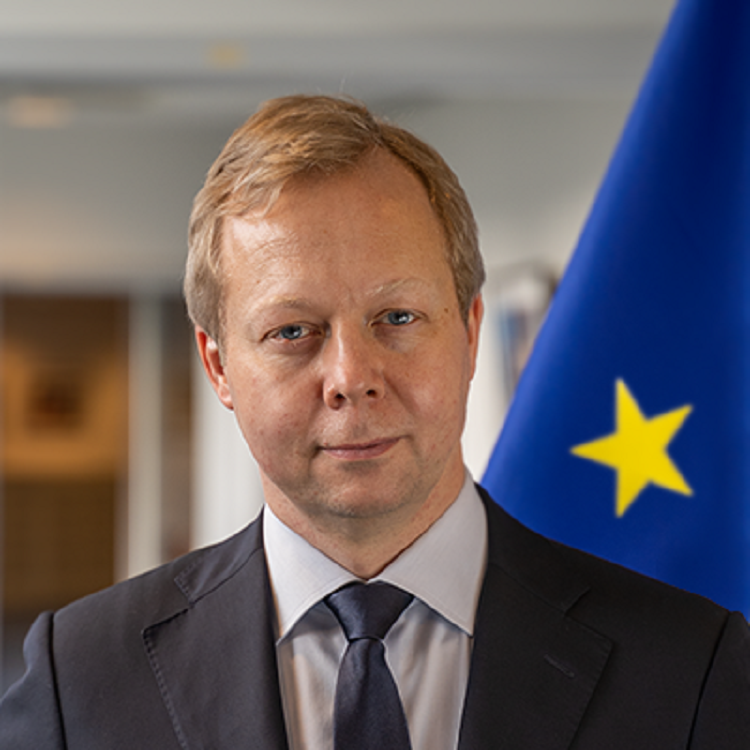The EU extends a hand and has some questions

The Russian invasion of Ukraine recalls to Europeans the meaning of peace and the value of friends. Israelis, living in a tough neighborhood, know the costs of conflict all too well. All the more reason for the European Union and Israel to work together. We are currently preparing an EU-Israel Association Council meeting, a high-level gathering, to build on our strong ties.
Yet the Israeli-Arab conflict and the occupation of Palestinian land still limit our potential. The EU wants to help lift that burden. So we have to face some concrete questions.
Some say that peace is impossible. Some want to believe there is already peace. Some even seem not to want peace. We believe they are all wrong. Peace is possible. And peace is still necessary, for the security, rights and prosperity of Israelis, as well as for the security, rights and prosperity of Palestinians. And, to be honest, your peace is in Europe’s interest too.
As Israel’s neighbor, historic friend and largest trading partner, enjoying excellent cooperation in technology, education and much more, we care. Europeans understand Israel’s security concerns. The EU strongly supports Israel’s right to fight terrorism, within full respect of its international human rights obligations.
We see the terror attacks in your streets and we face them in ours, so we established close security cooperation. We see antisemitism in your region and we see it in ours, so we launched a strategy to support Jewish life in Europe. Let us now see what more we can do.
The normalization agreements with Bahrain, Morocco, Sudan and the United Arab Emirates showed that positive change is possible. At the same time, we see tensions throughout the Holy Land, terrorist attacks in Israeli cities, hopelessness and death in Gaza, killings in the West Bank, settler violence, and a Western world increasingly critical of a situation that keeps millions of Palestinians, with ever less land, under a seemingly endless occupation. Normalization agreements did not stop that.
Yet the “peace process” no longer exists, and everyone blames someone else. We often hear: “There is nobody to talk to.” But is each of us sure that, until there is a “better peace partner” out there, we ourselves can do nothing more to prepare for peace? That we do not have homework to do? That we do not all have a responsibility to create new hope, also in order to help bring about that “better” partner? We believe that already now, Europeans, Israelis, Palestinians, Arab neighbors and international partners can do more than wait.
“Managing” the conflict means prolonging the suffering and the insecurity. In the absence of any effort toward a solution, the current situation is increasingly seen as a structural human rights problem, in which Israel has the upper hand. That negatively affects how the world perceives Israel, and holds risks for the long-term. It should not be that way.
We have a positive agenda: we do not aim to criticize; we want to help. That is why we extend a hand, and why 27 EU foreign ministers appointed a special representative to help revive the peace process, working with our American friends and many others.
The conflict is a man-made problem. A very complex one. But it can be solved by people too. Both peoples are here to stay. Israel will not give up Palestinian land without security and recognition. Palestinians will not accept being under military control of another people.
So those who are of goodwill need to work together to envisage a comprehensive peace, including Israelis, Palestinians and, in fact, the entire region. Indeed, let us reverse-engineer the solution. Rather than draw another road map, let’s together start drafting the destination – even when essential parts of it can only be identified by Israelis and Palestinians, and probably only once they themselves have almost arrived.
We invite all parties to join in mapping out what a detailed, comprehensive regional peace would actually look like. Once we can see the destination, it will be easier to get there.
Even those who prefer to wait for others to change can do this homework. Just ask: How do I want to solve the conflict? What, in my view, would be an acceptable outcome? How would I have the level of security and rights I need? How would I address the legitimate concerns of the other side? What can my international friends contribute to achieving peace?
Many already have answers for themselves. We can make concrete progress by collecting them and putting them out there.
Through my work as special representative for the Middle East peace process, the EU extends a hand to Israelis, Palestinians, Arab neighbors and international partners to explore these questions separately or, preferably, together. I look forward to a lot more listening and learning, but not to more waiting. Let’s, together, start working.
Op-Ed by Sven Koopmans, the European Union Special Representative for the Middle East Peace Process
